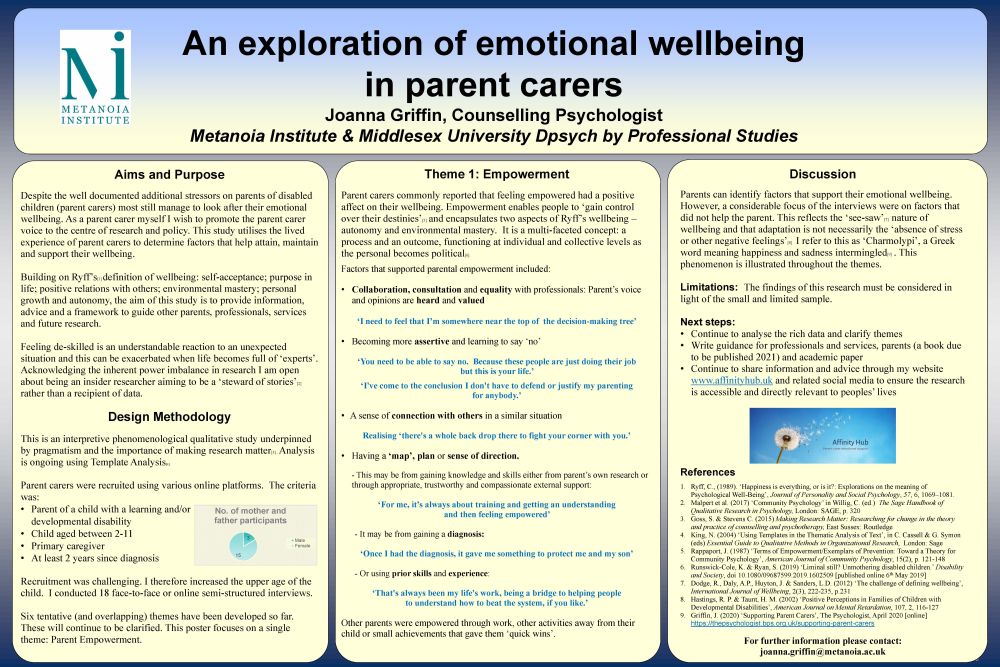
Aims or purpose
The research explores what supports parent carers’ emotional wellbeing. It is well recognised that parents of disabled children experience increased stressors in their life. Despite this, most parent carers manage to maintain their own wellbeing and cope, on some level, with the increased demands. This study asks parent carers to identify what they do, think or feel that helps their wellbeing. Some academic studies in this area either apply interventions to parents and their family or categorise strategies according to psychological theories. This can sometimes mean understanding is distant and not engaged with the parents’ lived experience. This study goes back to the parents themselves to gain a greater understanding of the phenomenon of maintaining one’s emotional wellbeing.
Design and methodology
This qualitative research takes an interpretive-phenomenological stance, involving semi-structured interviews. Twenty participants are sought who meet the following criteria:
- parent of a child with a learning and/or developmental disability
- child aged between 2-11 years old
- at least 2 years since diagnosis
The literature review and data analysis used a template analysis approach which is ongoing.
Ethical approval
Ethical approval was granted by the joint Metanoia Institute and Middlesex University Ethics Board as part of the DPsych by Professional Studies.
Results and findings
I have conducted five interviews so far. Tentative findings include:
- parent carers can provide insightful and rich accounts of what helps their emotional wellbeing identifying what:
a. They’ve found supportive
b. They’ve discovered
c. They can do to help themselves - parent carers value having their voices heard
- insider research has benefits as well as personal challenges
Research limitations
The sample for the study is small. Due to the topic and time-demands it may attract a limited section of the overall parent carer cohort. As an insider research I need to utilise collaborators (academic advisor, academic consultant, critical friend, peer support) to ensure I am not unduly biasing the findings.
Conclusions and implications
Parent carers can identify what helps their emotional wellbeing and their voice is invaluable in research. Services and support for parent carers would benefit from parent carer involvement. Themes arising from the data analysis, over the forthcoming months, can be shared with other parents and services.
Views expressed in this article are the views of the writer and not necessarily the views of BACP. Publication does not imply endorsement of the writer’s views. Reasonable care has been taken to avoid errors but no liability will be accepted for any errors that may occur.
